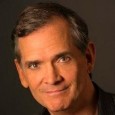When I read about the death of 87-year-old Robert Wilson, a philanthropist who made his fortune in hedge funds, I was startled. The circumstances of his death were certainly unnerving--he jumped from a 16th floor window of his apartment on Central Park West in New York--but also because his obituary told me so much more about his life than I had known previously.
In my new book Body Counts, I recount a horrible experience I had meeting Wilson at a dinner party in New York two decades ago. I had only recently met the host and was pleased when he invited me to dinner. The other three guests, all men, I was meeting for the first time, in the host’s fancy apartment on the Upper East Side. A servant took my coat when I arrived.
I won’t repeat the whole story here, except that Wilson made remarks that were racist, anti-Semitic and homophobic. By the time he got to AIDS, decrying the funds spent to fight it as a waste and blaming people with AIDS for having gotten the disease, voices were raised and a fist (mine) slammed on the table. The dinner party came to an end before everyone had finished their meal.
At the time I was still living what felt like a dual life. Not between gay and straight, but between my downtown activist “out” LGBT world and a more hidden gay scene, comprised of men who were, to varying degrees, closeted, politically conservative or disinterested. Most disturbing to me was when they seemed removed from--and uncaring about--the death and devastation that had enveloped New York’s gay male community at the time.
I didn’t realize Wilson was part of the top 1/100th of the top 1% until a mutual acquaintance later told me about his massive wealth. He also said Wilson had a reputation for making homophobic, racist and anti-Semitic comments (despite the fact Wilson was gay and dating a black man when we met). A friend of Wilson’s called him “the most politically incorrect person” he had ever met.
But like so many people, Wilson was more complicated than the simplistic hate and intolerance conveyed in comments he sometimes made. His philanthropy was legendary, including matching grants of $100 million each to the World Monuments Fund and another $100 million to the World Wildlife Fund.
Not long before he died he told a friend that he had given away so much, he was down to his last “$100 million.” After a stroke earlier this year, his pace of giving accelerated, presumably in anticipation of ending his own life. In his suicide note, the New York Post reports, he wrote, “Tell everyone what I did. I’m not ashamed of killing myself.”
Most of the reports about his death make no mention that Wilson was gay, but they do note his donations to environmental and preservation groups, as well as the American Civil Liberties Union and Catholic schools. But they don’t mention his support of an organization that is more consistent with the comments he made at that dinner party where I met him.
Wilson gave nearly a million dollars to the Federation for American Immigration Reform (FAIR), which the Southern Poverty Law Center (SPLC) has designated a "hate group,“ describing it as ”the most important organization fueling the backlash against immigration."
FAIR’s founder has been associated with “Holocaust deniers, former Klan lawyers and key white nationalist thinkers for decades.” SPLC notes that FAIR’s immigration position was “rooted more in its anti-Latino and anti-Catholic beliefs than in policy concerns,” that the group has employed members of white supremacist groups in key positions and some of its board members write for hate publications.
I admire Wilson’s philanthropy, even if I object to some recipients of his largesse. I’m sure he was a good friend to many. But at that dramatic dinner party in 1992--at a time of peaking AIDS-related deaths in the U.S.--Wilson personified the bigotry my comrades and I were fighting against.
We are all complex creatures, a mixture of impulses, some good, some not. But reading about Wilson’s incredible generosity in support of the ACLU and environmental and preservation efforts--all causes close to my heart--made me think about whether such good works outweigh the less attractive aspects of his personality and values.








Comments
Comments